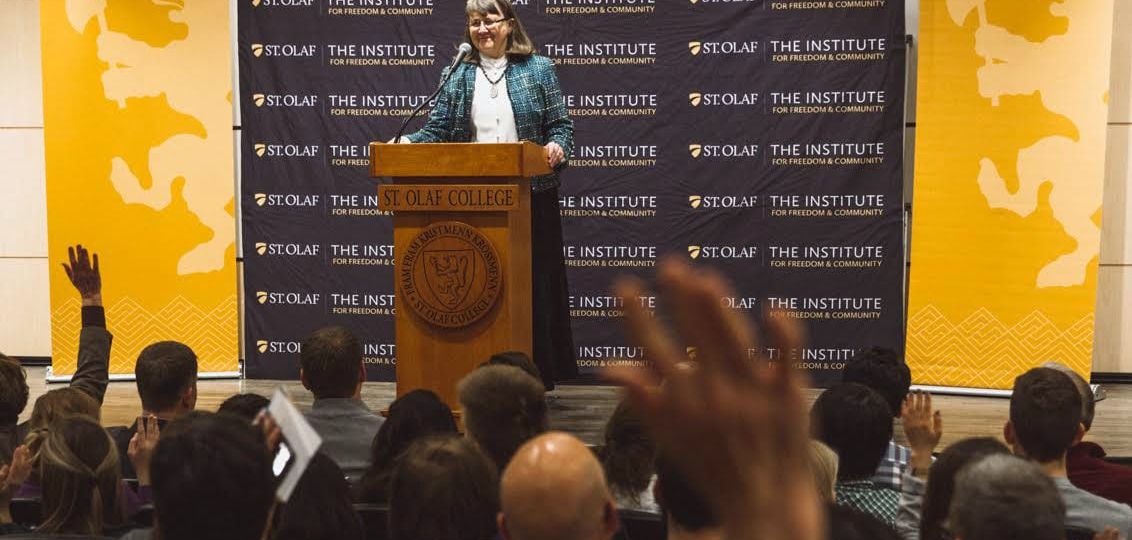
The Institute for Freedom and Community kicked off their spring lecture series, “Freedom, Community, and Health Care” on March 8 with a visit from Dr. Joanne Lynn, Director of the Center for Elder Care and Advanced Illness at the Altarum Institute. She spoke on the future of end-of-life care and eldercare in the United States. In a talk entitled “Sick To Death and Not Going to Take It Anymore!,” Lynn began the evening with a question: how many in the audience hoped to grow old?
“There’s a few that aren’t putting up their hand. So, you’d like to die young? [The] hardest thing for Americans to realize is that those are symmetrical questions. That your only choice in not growing old is to die young,” Lynn said.
According to Lynn the average person will spend the last two years of their life with substantial disability as a result of old age, and there’s little to no help from health insurers or the government in dealing with these issues. As the Baby Boomer generation ages, figuring out how to take care of them has become a major concern.
“We are really in for it as a society,” Lynn said. “We’re going to have twice as many frail old people in 15 years.”
“We are really in for it as a society. We’re going to have twice as many frail old people in 15 years.” – Dr. Joann Lynn
The large aging population, coupled with the average person’s meager $50,000 in retirement savings (that’s including physical assets, like a house), will pose a major problem for younger generations.
Lynn stressed that many of the issues surrounding end-of-life care weren’t even medical in nature. The more pressing issues to most elderly people are eating regular meals and finding decent housing. Of course Medicare doesn’t cover any of this. However, many of these services could be paid for if the federal government redistributed the bloated healthcare budget towards more holistic health services for the elderly.
The audience in Viking Theater was mostly made up of St. Olaf students, and the lecture was eye-opening for many of them.
“One of the striking things we learned from student evaluations of the Joanne Lynn lecture last week was how little students knew, before hearing the lecture, of the problems posed by elder care given the aging of the ‘Boomer’ generation,” Institute Director and professor of religion and philosophy Edmund Santurri wrote in an email.
Santurri also expanded on the Institute’s decision to focus on healthcare with their lectures this semester.
“A St. Olaf alum and former regent of the college, Dr. Judy Ryan, who has dedicated her life to health care, made a donation to the Institute to fund activities and programs related to health care, especially eldercare,” Santurri wrote.
Three more healthcare-centered lectures are planned for the semester. On March 15 Gilbert Meilaender, a former member of the President’s Council on Bioethics, will speak on the ethics of palliative sedation. The last two events, on April 19 and 26, will be discussions on the future of a single-payer system in the U.S. The first discussion will be between David Craig and Joan Tronto and the second between Amitabh Chandra and Tyler Cowen.
“There’s a lot to be excited about, and I’m especially pleased that Olaf students will have the opportunity to learn from and communicate with these stimulating thinkers,” Santurri wrote.
neuner1@stolaf.edu

